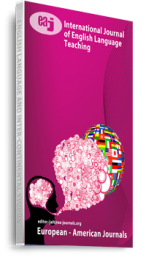The aim of the study was to investigate the approaches to learning English between Taiwanese arts undergraduate and graduate students and further to examine its relationship with their English language ability. The study tested two hypotheses: that undergraduate students tended to become increasingly surface and decreasingly deep in their approaches to learning English, and that Asian students preferred the surface approach to learning as indicated by numerous studies. A total of 102 participants joined the study, comprising 58 undergraduate and 44 graduate students. An online English proficiency test and a revised two-factor Study Process Questionnaire (R-SPQ-2F) were adopted. The results show that both undergraduate and graduate students applied more strategies within deep approach rather than surface approach when studying English. A significant difference was found in DS (deep strategy) in comparison between undergraduate and graduate students. Also, the higher the score students received in online English proficiency tests, the less they used surface approach. DM (deep motive) and DS were significant predictors on students’ English proficiency levels. The study depicted that the approaches to learning English for Asian students were changing and context did matter in different academic fields.
Keywords: Approaches to learning, Deep Approach, Learning English, Surface Approach

